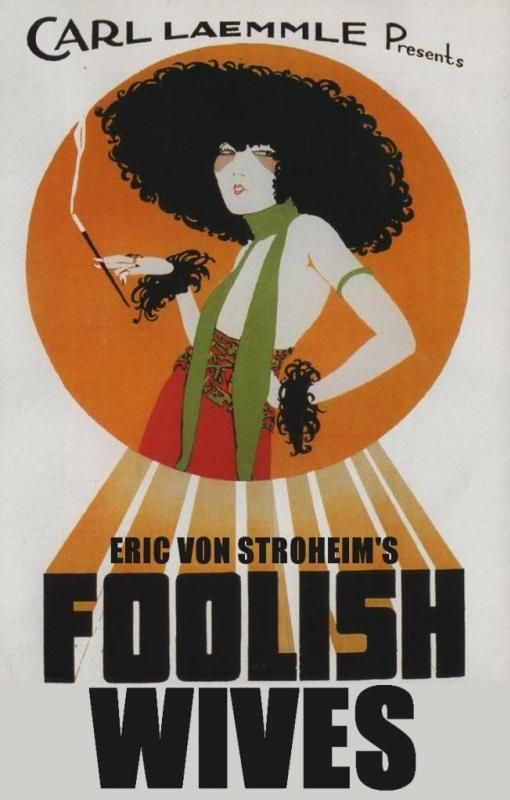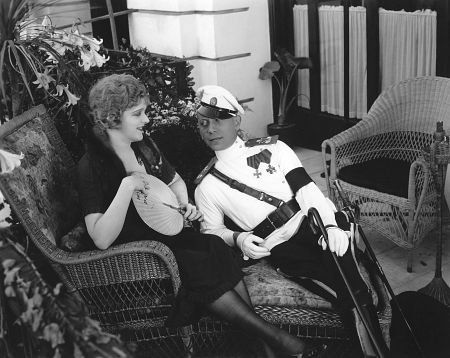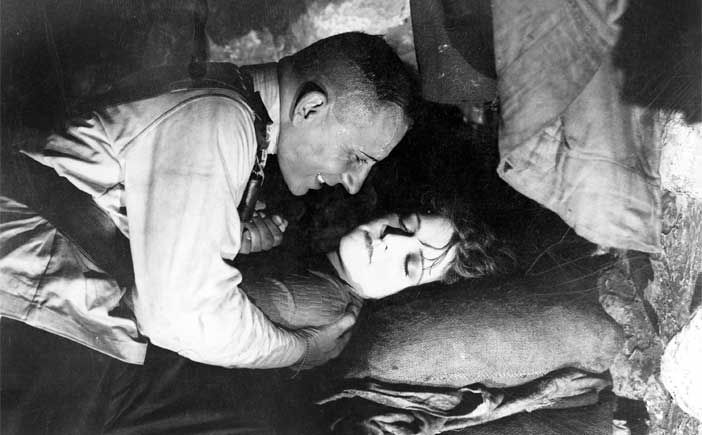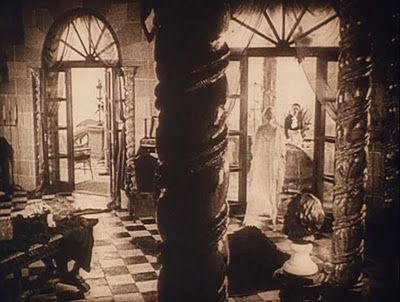Foolish
Wives
1922
Director: Erich von Stroheim
Starring: Erich von Stroheim, Miss
Dupont, Maude George, Rudolph Christians
Erich
von Stroheim has done it again! Jump
with joy for the anticipation of an overlong, completely over the top morality
play! Oh thank goodness, because there
really isn’t enough of that in my life at the moment.
“Count”
Sergius Karamzin (von Stroheim) is a con artist masquerading as an aristocrat,
preying off of the gullible upper class in Monte Carlo with the aid of his
“cousin,” Princess Olga Petchnikoff (George).
When an American dignitary (Christians) and his much younger wife Helen
(Dupont) arrive, the tricksters immediately set their sights on fleecing the
couple for everything they have. Sergius
sets to work charming Helen, slowly, of course, and trying to keep the husband
relatively unaware. Ultimately, however,
Sergius’ womanizing ways catch up with him.
As
I watched Foolish Wives for a second time, I kept on trying to put my
finger on what the story reminded me of.
Was it soap opera? No, soap opera
moves slower than this. Was it crappy
romance novels? No, crappy romance
novels have a hero, and Foolish Wives has no hero, just
ridiculous naïve characters and Evil Villains of Evil. And then it finally hit me. I thought to myself, “Sergius is Don
Juan.” Which then made me think Don Giovanni, (in particular, Mariusz
Kwiecien in Don Giovanni… mmm,
Mariusz Kwiecien…) Mozart’s operatic reimagining of Don Juan. And that’s precisely what Foolish
Wives is: it’s an opera plot without the actual, y’know, opera.
Now,
I am a definite fan of opera. Like,
pretty darn big time. All my students
know it. All my friends know it. Opera rocks, man. I will preach this from the highest hilltop.
But
Foolish
Wives does NOT rock, despite this association I made. Why?
The last thing I’m looking for from my opera is plot, and that’s ALL
that Foolish
Wives has going for it.
The
plots of operas are not the point of the opera itself. If you wanted interesting story development,
no one in their right mind would think, “I know! Let’s all hit up Il Barbiere di Siviglia tonight!
That’s got one crackerjack plot!”
The operatic plots are mere scaffolds on which fantastic music is
hung. What’s more, they are usually
simple to their core. Any opera I’m
familiar with can be summed up in two sentences, three at the most. If it’s a comedy, it’s “mistaken identities
prevent the hero and heroine from proclaiming their love for one another while
a baritone gets in the way.” If it’s a
tragedy, “everyone makes bad decisions then dies.” Yes, I’m oversimplifying, but not by
much. And opera plots are notoriously
slow to progress. Because the plots are
so simple, there isn’t a tremendous amount of plot progression, and the story
can move rather slowly. The arias are
rarely about plot progression in an opera, instead being about the fabulous
music. Even my mother, whose only
experience with opera is when I’ve tied her down and shoved some Juan Diego
Florez in her eyeballs, noticed that “everyone tends to repeat themselves in
the songs, just singing the same thing over and over.” Yes, exactly.
And what they’re repeating is usually something straightforward, like “I
love her.” Or “I hate him.” Or “Wow, I’m
so happy.”
To
bring this back to Foolish Wives, imagine now that simplistic plot that operas
have, where everyone says the same thing over and over again, where the plot is
ridiculously slow to progress, and then remove the awesome music from it, and
you have this movie. A plot so utterly
simple – con man corrupts gullible wife – and a story that moves so damn slowly
– I don’t understand why this has to be two and a half hours – that is
absolutely full of the characters doing or saying the same thing over and over
again – how many scenes do we need of Sergius being a smarmy bastard to
Helen? Add them all together, and you
get Foolish
Wives, the non-opera opera story.
I don’t watch opera for plot, I watch it for tremendous singing and
amazing music, both of which Foolish Wives lacks, making the whole
movie rather dull.
What
is impressive about Foolish Wives are the sets.
Watching this through, I assumed it was partially shot on location
somewhere; if not Monte Carlo itself, then a spot that looks like Monte
Carlo. But no, it wasn’t. Nope, von Stroheim being the egotistical
bastard he was, he built Monte Carlo, complete with a fake lake, in studio
backlots. Alright, von Stroheim, I’ll
give you your due, that’s rather amazing.
Although not perhaps as grand as some of the set work in Intolerance,
it’s pretty close.
Many
silent films do not translate well with modern audiences. There are some that do, and some that are
still spectacular today, but most feel dated in many ways. Time has not been kind to Foolish
Wives. The story is one that modern
audiences would barely register an interest in, and when you throw on von
Stroheim’s ego in insisting this be an “epic” in terms of length, what results
is a product few would find compelling.
Arbitrary
Rating: 4/10



